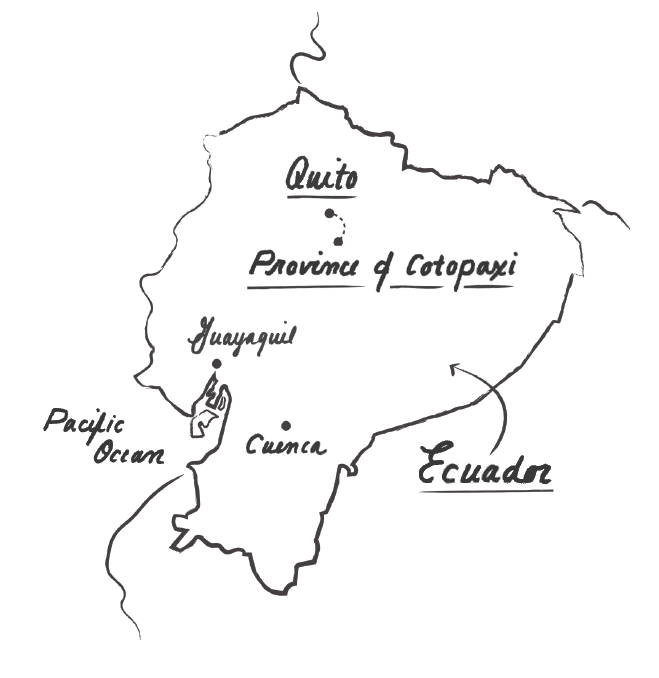 In early December, AntonioĚýMaldonado carefully made his way through the Detroit Institute of Arts. He paused when he got to the Detroit Industry Murals, seeing himself in the famous work’s depiction of immigrant workers. “I kind of broke down,” says the former merchandising coordinator, who then worked out of the Google offices in Detroit.
In early December, AntonioĚýMaldonado carefully made his way through the Detroit Institute of Arts. He paused when he got to the Detroit Industry Murals, seeing himself in the famous work’s depiction of immigrant workers. “I kind of broke down,” says the former merchandising coordinator, who then worked out of the Google offices in Detroit.
As a queer person who had emigrated from Ecuador, he now had access to opportunities he could not have experienced in his conservative home country. In fact, the very trip to the museum was an escape for Maldonado to process the anger and sadness he felt after learning that a good friend in Ecuador was the victim of LGBTQ+ discrimination.
While the 23-year-old found educational and professional success in Michigan (Maldonado moved to Detroit in 2017 after graduating from Alma College) he felt he wasn’t doing enough for the natives of his hometown. “Since coming to the states, I’ve been able to be myself. I’m in my dream job. I’m living in the apartment I always wanted. But I’m not happy because I’m doing nothing for the people.”

Following this revelation at the museum, Maldonado left his job. Then, what was supposed to be a quick visit to Ecuador for the holidays turned into months of research and planning. When he returned to Detroit in January, he had established Handpicked Exports, a business that imports roses from Ecuador with the goal of supporting its native people.
As soon as I opened that box I started crying. I felt like it was a piece of my country in Michigan.
—Antonio Maldonado
Of all the goods Ecuador is known to produce — including bananas, coffee, and shrimp — roses stood out to Maldonado as an ideal venture because of their international reputation for being the biggest, most beautiful, and brightest blooms. The country’s close proximity to the equator is to thank for this, and the high altitude allows the roses to bask in a different type of sunlight than those from competing countries like Colombia and Bolivia.
More important than aesthetics, however, the Ecuador rose industry, which drew criticism when first established in the ’90s because of low wages and poor treatment of workers, has grown to be increasingly kind.
Now aligning with values that are most important to Maldonado, many of the country’s rose farms are embracing sustainable practices and fueling economic development for tourism and in the households of indigenous people. Being a part of it on a business level would mean that Maldonado could directly contribute to the prosperity of his homeland.

After meeting with an array of farmers in Ecuador, he would ultimately partner with Handpicked Exports’ current supplier,Ěýa rose farm based in the Province of Cotopaxi. During his visits, Maldonado witnessed that the farm, which boasts a Rainforest Alliance Certification, was supportive of its workers. The coupleĚýwho runs it are even the proud parents of two queer children. “That doesn’t happen too often in Ecuador,”
says Maldonado, “and they wanted to work with us.”Ěý
He spent the rest of his time in his home country learning the logistics of the business. The employees worked through their nearly four-week process, which includes tending to the rose gardens, cutting the flowers when they’re ready, carrying them by hand to a cold storage facility, and packaging them. By late February’s polar vortex, Handpicked Exports received its first shipment in Detroit.Ěý

LAY OF THE LAND: HANDPICKED EXPORTS ROSES ARE GROWN IN COTOPAXI AND LATER SHIPPED FROM QUITO
“As soon as I opened that box I started crying,” Maldonado says. “I felt like it was a piece of my country in Michigan.”
Today, Handpicked Exports offers more than 118 types of roses. His cousin, Maria, who is based in Ecuador, is a local contact forĚýthe rose farm, while Maldonado, who has taken on the title ofĚýfounder and CEO, is figuring out the other aspects of the business on his own. Working out of a friend’s basement locally, he’s taught himself everything from cutting and arranging roses to marketing and building new relationships with nearby businesses.

Naturally, the vibrancy and overall high quality of Ecuadorian roses comes with a higher price tag than most. On average, they’re priced at up to almost $3.25 a piece, compared to $3 for a standard rose, which has resulted in some businesses declining to work with Handpicked Exports. This, nor the increasing number of hours he’s had to put into the business, hasn’t deterred Maldonado though. He is confident that Detroiters will ultimately want to invest in a product with purpose. “I see my roses as little ambassadors of Ecuador in Detroit,” he says.Ěý

The new business has given Maldonado the opportunity to share the beauty of his home country. “It’s rewarding. I know it takes more effort. I know it’s risky, but [I’m doing] something that supports my people and my country.”
For more information, visit .Ěý
|
| Ěý |
|









